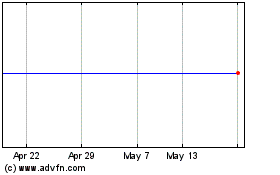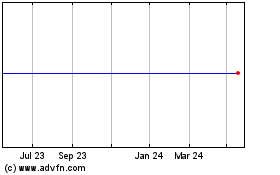A contingent liability is disclosed where the existence of an
obligation will only be confirmed by future events or where the
amount of the obligation cannot be measured with reasonable
reliability. Contingent assets are not recognised, but are
disclosed where an inflow of economic benefits is probable.
Provision for decommissioning - Provision for decommissioning is
recognised only to the extent of the expected costs needed to
remediate the actual damage made to the environment. A
corresponding amount equivalent to the provision is also recognised
as part of the cost of the related property, plant and equipment.
The amount recognised is the estimated cost of decommissioning,
discounted to its net present value, and is reassessed each year in
accordance with local conditions and requirements. Changes in the
estimated timing of decommissioning or decommissioning cost
estimates are dealt with prospectively by recording an adjustment
to the provision, and a corresponding adjustment to property, plant
and equipment. The unwinding of the discount on the decommissioning
provision is included as a finance cost.
Income taxes - Income tax expense represents the sum of the tax
currently payable and deferred tax. The Group provides for taxes
based on the tax accounts maintained and prepared in accordance
with the tax regulations of the Russian Federation.
The tax currently payable is based on the taxable profits for
the period. Taxable profit differs from net profit as reported in
the statement of comprehensive income because it excludes items of
income or expense that are taxable or deductible in other periods
and it further excludes items that are never taxable or deductible.
The Group's liability for current tax is calculated using tax rates
that have been enacted or substantively enacted by the reporting
date.
Deferred income tax is recognised, using the balance sheet
liability method, on temporary differences arising between the tax
bases of assets and liabilities and their carrying amounts in the
consolidated financial statements. Deferred income tax is
determined using tax rates (and laws) that have been enacted or
substantially enacted by the reporting date and are expected to
apply when the related deferred income tax asset is realised or the
deferred income tax liability is settled.
Deferred income tax assets are recognised only to the extent
that it is probable that future taxable profit will be available
against which the temporary differences can be utilised.
Deferred income tax is provided on arising temporary
differences, except where the timing of the reversal of the
temporary difference is controlled by the Group and it is probable
that the temporary difference will not reverse in the foreseeable
future.
Tax relating to items recognised directly in equity is
recognised in equity and not in the statement of comprehensive
income.
Pensions and post-employment benefits - Wages, salaries,
mandatory defined contributions to the state pension and social
insurance funds, paid annual leave and sick leave, bonuses, and
non-monetary benefits are accrued in the year in which the
associated services are rendered by the employees of the Group.
Share based payments - The fair value of the employee services
received in exchange for the grant of the share awards is
recognised as an expense over the vesting period of the award, with
a corresponding increase in equity. The total amount to be expensed
over the vesting period is determined by reference to the fair
value of the share awards at the date of grant, excluding the
impact of non-market vesting conditions. Non-market vesting
conditions are included in assumptions about the number of options
that are expected to vest. At the end of reporting period, the
Company revises its estimates of the number of options that are
expected to vest. The impact of the revision of the original
estimates is recognised in profit or loss with a corresponding
entry to equity.
Share capital - Ordinary shares are classified as equity. The
difference between the nominal value of the shares and the issue
price is recorded as share premium.
Share issuance costs - Costs that are directly attributable to
the issue of new shares such as broker commissions, settlement
fees, legal and other expenses are deducted from equity. Costs that
related jointly to more than one transaction are allocated between
the share premium account and statement of comprehensive income in
proportion to the number of new shares issued compared to the
existing number of shares. The costs allocated to the listing of
existing shares are expensed in profit or loss.
Advances and prepayments - Advances and prepayments are carried
at cost less provision for impairment. An advance or prepayment is
classified as construction in progress when the goods or services
relating to the advance or prepayment are expected to be obtained
after one year, or when the advance or prepayment relates to an
asset which will itself be classified as non-current upon initial
recognition. Advances or prepayments to acquire assets are
transferred to the carrying amount of the asset once the Group has
obtained control of the asset and it is probable that future
economic benefits associated with the asset will flow to the Group.
Other advances and prepayments are written off to profit or loss
when the expenses relating to the advances or prepayments are
incurred. If there is an indication that the assets, goods or
services relating to an advance or prepayment will not be received,
the carrying value of the advance or prepayment is written down
accordingly and a corresponding impairment loss is recognised in
the consolidated statement of comprehensive income.
Revenue recognition - Revenues from sales of goods are
recognised at the point of transfer of risks and rewards of
ownership of the goods, normally when the crude oil is shipped. If
the Group agrees to transport goods to a specified location,
revenue is recognised when the goods are passed to the customer at
the destination point. Sales are shown net of VAT and
discounts.
Revenues are measured at the fair value of the consideration
received or receivable. Interest income is recognised on a
time-proportion basis using the effective interest method.
5. Critical accounting judgements and key sources of estimation uncertainty
The preparation of the financial statements in conformity with
IFRS requires management to make estimates and assumptions that
affect the reported amount of assets and liabilities and disclosure
of contingent assets and liabilities at the date of the financial
statements and reported amounts of revenues and expenses during the
reporting period. Actual results could differ from those
estimates.
Details of the Group's significant accounting judgments and
critical accounting estimates are set out below:
Decommissioning costs
Provision for decommissioning represents the present value of
decommissioning costs relating to the Russian Federation oil and
gas interests, which are expected to be incurred after 2027. These
provisions have been created based on the Group's internal
estimates. Assumptions, based on the current economic environment,
have been made which management believe are a reasonable basis upon
which to estimate the future liability. Those estimates are
reviewed regularly to take into account any material changes to the
assumptions. However, actual decommissioning costs will ultimately
depend upon future market prices for the necessary decommissioning
works required which will reflect market conditions at the relevant
time. Furthermore, the timing of decommissioning is likely to
depend on when the fields cease to produce at economically viable
rates. This in turn will depend upon future oil and gas prices,
which are inherently uncertain.
Major assumptions used in estimation of decommissioning costs
are set out below:
Exillon TP:
-- As at 31 December 2012, undiscounted value of estimated
future cash outflows is estimated at
$3,564 thousand (2011: $1,679 thousand);
-- Expected timing of future cash outflows - the majority of the
expenditure is expected to take place in a range between 2027 and
2038 (2011: between 2027 and 2038);
-- Discount rate -8% per annum (2011: 10%);
-- Inflation rate - 3-7% per annum (2011: 5%).
If the discount rate had increased by 1% to 9% at 31 December
2012, the decommissioning liability would have been $236thousand
lower (2011: $115 thousand lower).
Exillon WS:
-- As at 31 December 2012, undiscounted value of estimated
future cash outflows is estimated at
$14,653 thousand (2011: $8,465 thousand);
-- Expected timing of future cash outflows - the majority of the
expenditure is expected to take place in a range between 2027 and
2038 (2011: between 2027 and 2038);
-- Discount rate -8% per annum (2011: 10%);
-- Inflation rate - 3-7% per annum (2011: 5%).
If the discount rate had increased by 1% to 9% at 31 December
2012, the decommissioning liability would have been $976 thousand
lower (2011: $577 thousand lower).
Estimation of oil and gas reserves
In 2011 the Group extended the expiration date of subsoil
licences ETP I and ETP IV from 2013 to June 2036 and December 2038,
respectively. There were no license extensions in 2012 year.
Oil and gas reserves are key elements in the Group's investment
decision-making process. They are also an important element in
testing for impairment. Changes in oil and gas reserves,
particularly proved and probable reserves, will affect
unit-of-production depreciation charges in the consolidated
statement of comprehensive income.
Exillon Energy (LSE:EXI)
Historical Stock Chart
From Jul 2024 to Aug 2024

Exillon Energy (LSE:EXI)
Historical Stock Chart
From Aug 2023 to Aug 2024
